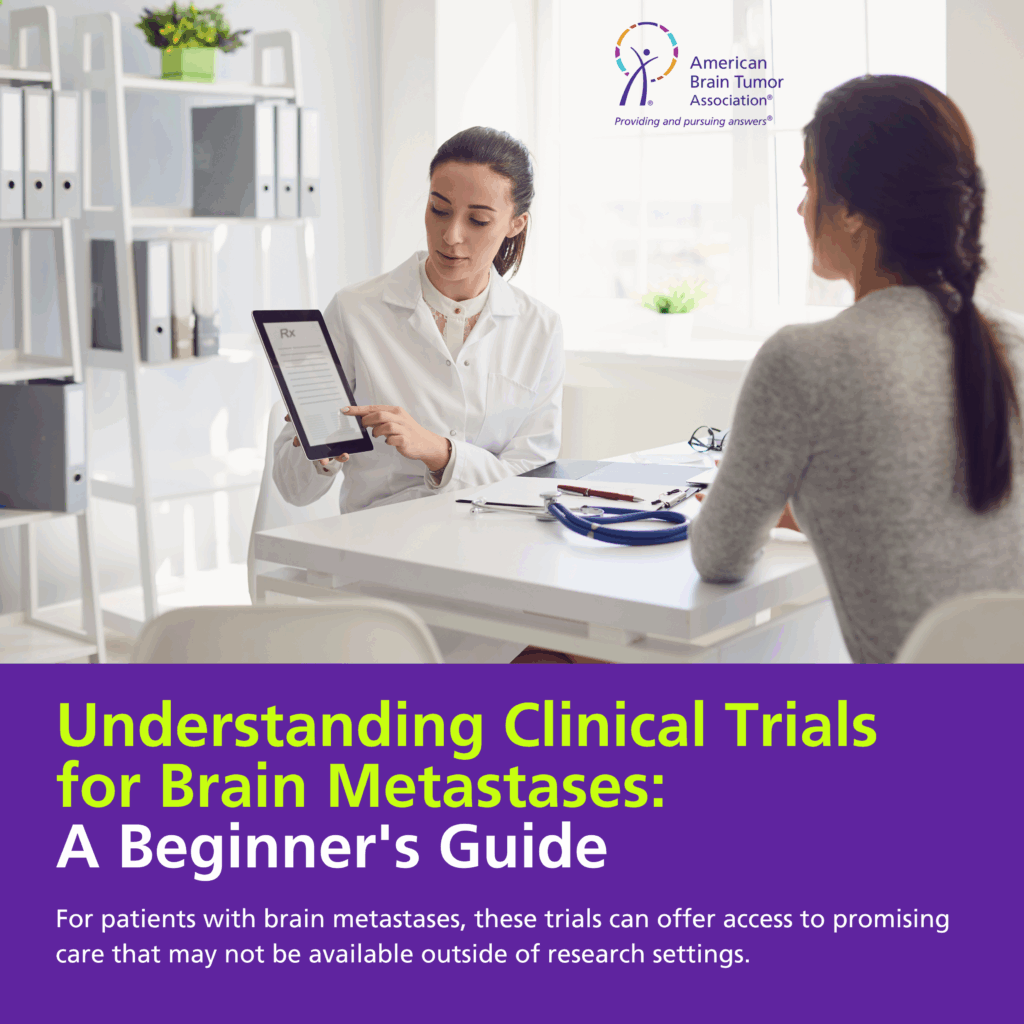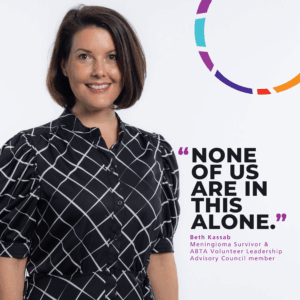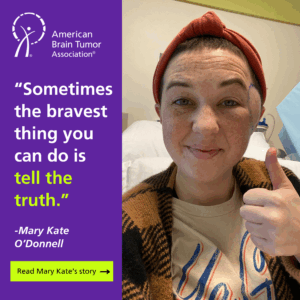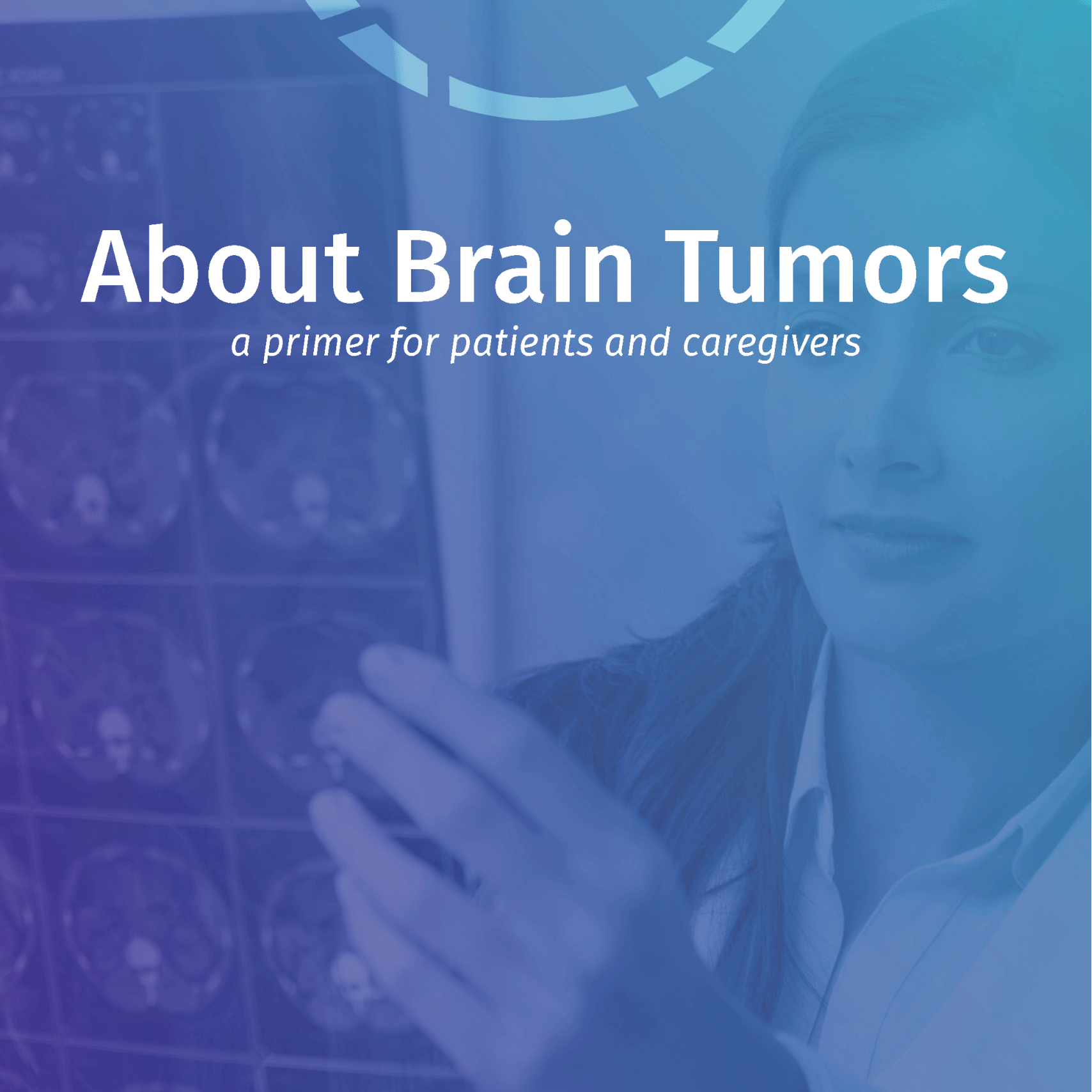Hearing that cancer has spread to the brain can feel overwhelming. You may have questions, fears, and so many decisions ahead. But you’re not alone—and there may be more options than you think. One important option to understand is clinical trials.
Clinical trials are research studies that test new treatments, new combinations of treatments, or new ways of using existing therapies. For patients with brain metastases, these trials can offer access to promising care that may not be available outside of research settings.
This article breaks down the basics of clinical trials, who may be eligible, and how to begin exploring your options with your care team.
What Are Clinical Trials—and Why Do They Matter?
Almost every cancer treatment used today was first studied in a clinical trial. These trials are how doctors discover safer, better, and more effective ways to care for people with cancer.
In the past, patients with brain metastases were often excluded from trials. This was due to worries about how drugs affect the brain, or whether the treatments would work the same way. Thankfully, that’s changing. More and more studies are now designed specifically for patients with brain mets—or include them in a meaningful way.
This means more hope, more research, and more possibilities for patients like you.
Who Can Join a Clinical Trial?
Every clinical trial has a list of guidelines about who can and cannot participate. These are called eligibility criteria.
Common factors that may affect eligibility include:
- Type of cancer (such as breast, lung, or melanoma)
- Number and size of brain metastases
- Prior treatments you’ve had
- Your ability to perform daily tasks (also called “functional status”)
Not meeting these criteria doesn’t mean you’re out of options. Some studies may still allow you to join through what’s called expanded access, or your doctor might recommend a different trial that’s a better fit.
What’s the Process Like?
The journey often begins with your oncologist. If they think you might be a good fit for a trial, they can refer you to a research center or specialist. You can also look for trials yourself on ClinicalTrials.gov, though the site can be hard to navigate at first. Organizations like the ABTA or the National Brain Tumor Society can also help.
Once a trial is identified, a screening process begins. This includes reviewing your medical history, lab results, and scans. If everything matches the trial’s requirements, you’ll be asked to review and sign a consent form. This form explains what the trial is testing, how often you’ll need to come in, any possible risks or side effects, and what happens if you want to stop.
It’s your choice to participate, and you can leave the trial at any time.
What Are the Benefits and Risks?
Being in a trial means you may get access to treatments that aren’t widely available yet. You’ll also be followed closely by a research team and may receive more frequent scans or bloodwork. Many patients say this gives them peace of mind.
But trials can also have downsides. You might need to travel more often or spend long days at the hospital. Some treatments may not work or could cause side effects. It’s important to talk openly with your doctor and loved ones about whether a trial feels right for you.
Final Thoughts: You’re Still in the Driver’s Seat
Clinical trials aren’t just for people who’ve run out of options. They’re for anyone who wants to explore every possibility, ask questions, and take part in the future of cancer care.
If you or someone you love is facing brain metastases, talk to your doctor about whether a clinical trial might be right for you. Ask what your standard treatment options are, and whether a trial could add to or replace them.
Remember: The choice is yours. And no matter what you decide, your care team is there to support you every step of the way.










